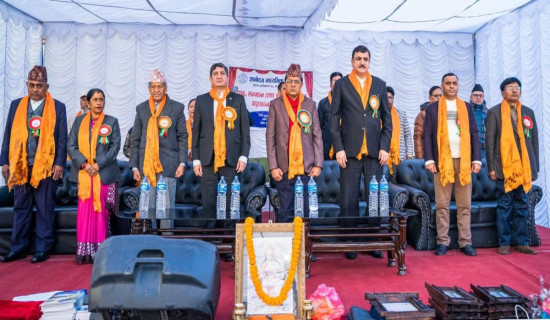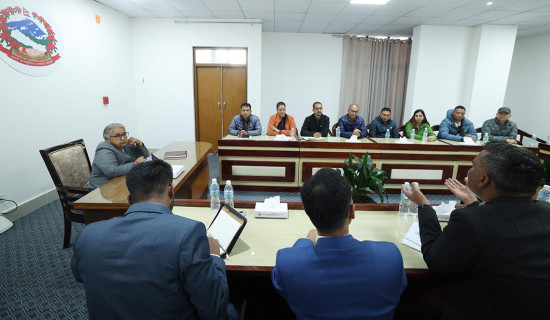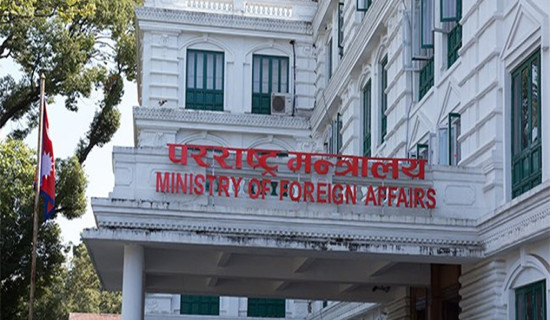- Monday, 1 December 2025
LDP’s Quest For Image Change
Japan’s Liberal Democratic Party and partners last week elected a new prime minister after Shigeru Ishiba decided to step down after the party failed to win a majority in either of the two chambers of parliament. Known as a far-right conservative, Takaichi Sanae, 64, marks the first woman to head the world’s fifth-largest economy. Takaichi has to first turn her attention to public anger as prices continue to soar even as she prepares for a meeting this week with Donald Trump, the president of the United States. She had reservations over the $550 billion tariff and investment deal her predecessor made with Washington.
While Takaichi will probably not try revising the agreement, a cautious approach strewn with reservations might be expected. In this, her party will have to back her fully. But she cannot ignore voices asking: Is LDP a “big” organisation or a “party that doesn’t change”? Some sections among the youths feel that their country appears to be overly obliging to the US interests without reciprocity.
LDP’s staying power has been remarkable since 1955, comparable to Singapore’s People’s Action Party, which has always enjoyed an overwhelming majority since its independence 60 years ago. But in the latter decades, Japan’s dominant party has recorded some upsets, having had to head a coalition government or sit on the opposition benches twice, though for short spells.
Strewn with challenges
Even with a record of having been in power for all but about four years since 1955 notwithstanding, the organisation is losing grip on its power base — the voting public. Party supporters call for change in its structure, policies and performance, especially when challenges mount on account of a changing world order.
A major scandal shook up the faction-ridden party over fund fundraising scam in 2023-24. In the previous decades, too, such incidents occurred but now the country’s 120 million people’s patience is wearing off. Constitutional Democratic Party (CDP), Democratic Party for the People, and the Do It Yourself Party, a far-right anti-immigrant party, are the LDP’s rivals for its vote base. The last election underscored this in no uncertain terms.
The October 2024 general election tossed up a House with no party winning a clear majority. The July 2025 Upper House election followed suit, raising the prospects of a stalemate in parliament. Although the upper chamber is weak when compared with the popular house, it can create obstacles and play a significant role in electing a prime minister.
Takaichi’s big challenge of shoring up the economy is an onerous task. Inflation and rising costs of living are problems of immediate concern. First, it was China that took the world No. 2 position in the list of the world’s biggest economies, and relegated Japan to the No. 3 spot. Germany pushed it a rung down to the fourth place and this year India elbowed it out to the fourth spot.
Should the trend continue, Japan’s economic ranking will fall further and people’s frustrations will rise. Setting sight on stemming the decline merits a top priority. The new prime minister’s uphill task is underscored by a last-minute hitch when one of the LDP's supporting groups pulled out from supporting her candidacy. Another smaller party eventually agreed to come aboard the coalition. With her, Japan has had five prime ministers in four years.
Although Shigeru Ishiba had been popular with voters for a long time, he was constantly nagged by LDP members on various issues. He is now succeeded by an ardent admirer of Abe Shinzo, whom Ishiba vehemently disagreed with on several key issues. A proponent of an Asian model of NATO, Ishiba supported legalising same-sex marriage, whereas his successor is against married couples retaining even separate surnames.
Voter angst will intensify if the economy does not improve. New winds of trade and industrial policy changes are brewing in major economic powerhouses. Japanese youth hunger for better-paying jobs, though the economy is not what it used to be during the country’s heydays in the 1950s and after. Once an economic powerhouse that was the envy of other countries, there is deep concern in Tokyo today as to whether things can be turned around for a return to conditions reflecting the first several decades of the post-World War II period.
Tightrope walking
Given that hers is the fourth government in five years, Takaichi needs to conjure up a balancing act within the coalition constituents and yet stimulate the economy and engage in foreign policy, matching the fast-changing world. Her task includes soothing South Korea’s worry over her standing as a staunch conservative in social as well as foreign policy issues. North Korea now and then taunts Japan with its long-distance missiles and nuclear ambitions. China sees Takaichi’s foreign policy outlook as hawkish, like that of ex-premier Abe, her mentor, who was murdered after retirement.
Considering the Sino-Russian understanding and cooperation growing in various fields, Takaichi might do the calculations fast and right. Some members of the European Union and NATO military alliance show signs of reducing their distance from communist China, only to soften their stance in deference to new realities. Whereas Russia and Japan have not signed a formal peace treaty marking the end of World War II, Tokyo claims four islands and some islets off its northern region of Hokkaido. Russia has administered the disputed islands since 1945.
LDP presided over the mid-1950s and the 1960s, which dazzled the world and saw Japan’s economic recovery at breakneck speed. Tokyo hosted the 1964 Summer Olympics, making Japan the first Asian country to gain the distinction. South Korea followed suit 24 years later and China did the same in the 1990s before Japan hosted the 2024 Olympics to become the only Asian country to do it twice. It also hosted the Winter Olympics twice.
With an exemplary background, the Land of the Rising Sun has all the potential to bounce back as an economic force at a level it once achieved. It has to reorient its policies and priorities.
(Professor Kharel specialises in political communication.)








-square-thumb.jpg)





